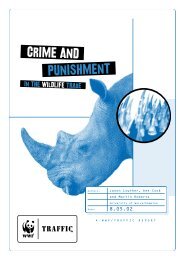Deeper Luxury Report - WWF UK
Deeper Luxury Report - WWF UK
Deeper Luxury Report - WWF UK
Create successful ePaper yourself
Turn your PDF publications into a flip-book with our unique Google optimized e-Paper software.
customers were 10% Asian and 90% Western; now, it’s<br />
50:50. The Asian market for green products is definitely<br />
on the rise”. 25<br />
Dozens of Asian lifestyle magazines featured<br />
his company during 2007, many of them splashing green<br />
lifestyle themes across their cover. In Singapore, Issy<br />
Richardson, co-founder of organic t-shirt company<br />
Belle and Dean, says that “with increasing press<br />
coverage and celebrity endorsements of green living<br />
and eco-fashion brands, attitudes are changing and an<br />
interest in green fashion seems to be surfacing”. 26<br />
In Asia, green lifestyles are becoming aspirational<br />
Simon Chau, founder of Produce Green Foundation<br />
in Hong Kong, says, “Asia has a long tradition of<br />
ecological awareness from its religious beliefs such<br />
as Taoism and Buddhism. Health scares triggered<br />
Asian society to challenge food safety issues,<br />
acceptable work environments and questions of<br />
personal health.” Opinion surveys in China reveal<br />
high levels of concern (reaching 80%) over certain<br />
environmental issues, although less awareness of<br />
possible solutions. 27<br />
Despite this lack of awareness,<br />
China’s richest man, Zhengrong Shi, accumulated<br />
his estimated $2.2 billion fortune thanks to the success<br />
of his solar power company, Suntech Power Holdings. 28<br />
Awareness is also growing in Latin America and in the<br />
European Union’s newest member states. Although most<br />
luxury fashion brands derive less than 5% of their revenues<br />
from sales in the new Europe, consumers in these markets<br />
© SCMP / Cosmopolitan<br />
are following the global trend of rising environmental<br />
and social consciousness. Lithuania’s leading fashion<br />
magazine, IEVA, ran a green issue in 2007; one article<br />
was entitled “Ecological snobs in Hollywood, in fashion<br />
and in life”, and an editorial headlined “I want to be a<br />
snob” suggested that environmental responsibility<br />
confers social status on individuals. 29<br />
In neighbouring Latvia, Lotte Tisenkopfa, co-owner of<br />
the Latvian natural cosmetics company Mádara, says<br />
that her western colleagues “are fascinated by how<br />
close to nature we still are...One of our partners was<br />
truly moved to hear that…we still celebrate Midsummer’s<br />
Eve the way he did as a child, 50 years ago. Feeling<br />
this atmosphere of celebration surrounding the cycle<br />
of nature made him happy once again.” 30<br />
In Latin America, Brazil’s middle classes are also tuning<br />
in to social and environmental issues concerning<br />
business. The São Paulo fashion week has featured<br />
environmental themes in recent years. Brightly coloured<br />
fish leather bags, soft natural rubber straps and iridescent<br />
floor tiles made from compacted PET plastic bottles<br />
have all been featured as sustainable fabrics.<br />
Fish leather: a more sustainable alternative<br />
<strong>Deeper</strong> <strong>Luxury</strong><br />
14/15<br />
© Osklen


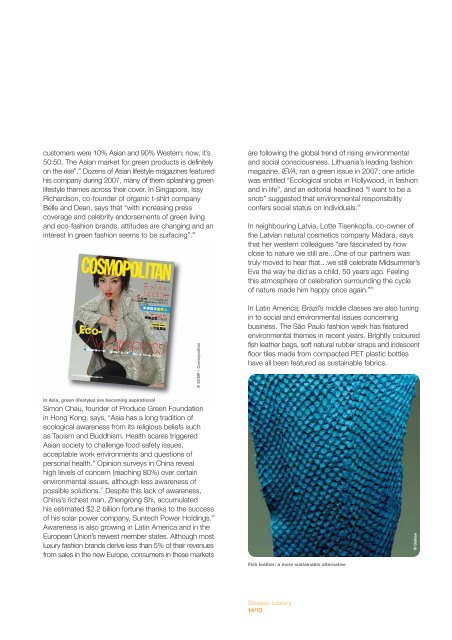
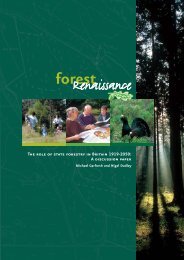
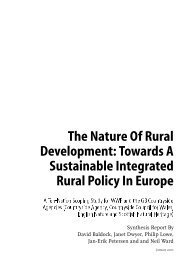
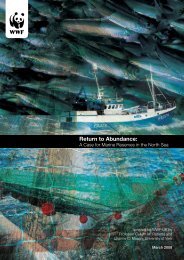
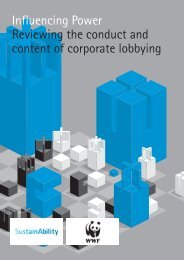
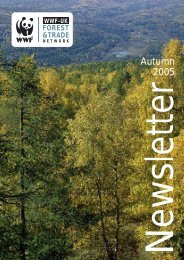
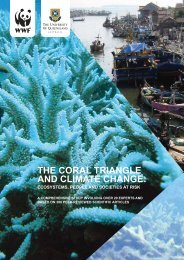
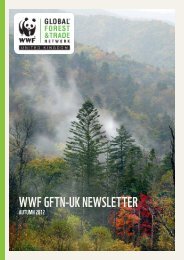
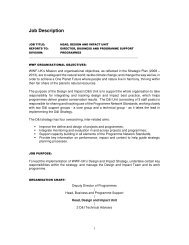
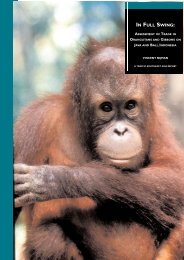
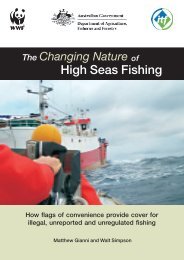
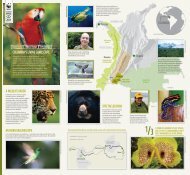
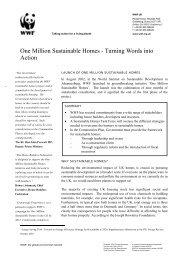
![[PDF] Causes for concern: chemicals and wildlife - WWF UK](https://img.yumpu.com/31929970/1/184x260/pdf-causes-for-concern-chemicals-and-wildlife-wwf-uk.jpg?quality=85)
